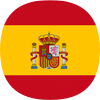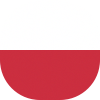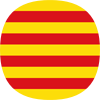Training FAQ
Frequently asked questions about our Feldenkrais Method training programs
Pursuing the Feldenkrais Method: For Personal Growth and/or Teaching
Not all participants in our Feldenkrais professional training programs intend to become teachers of the method. In fact, a significant portion of students enroll for personal enrichment and development, rather than pursuing a teaching path.
It’s not uncommon, however, for students who initially joined the program for personal benefit to later decide to teach Feldenkrais. Some of these students generously volunteer their time and skills, providing free Feldenkrais instruction in community projects.
If you are joining one of our programs with a clear intention to master a new profession and subsequently work as a Feldenkrais teacher, we applaud your decision! However, it’s important to note that this 4-year training program is not just a vocational journey, but also a transformative personal experience. You will greatly benefit from the detailed study and the individualized experience of this method on a deeply personal level. (Read more about working as a Feldenkrais Practitioner here…)
Participating in a Feldenkrais Training Program
While a significant portion of our students come from therapy or teaching backgrounds, there are no specific prerequisites to join a Feldenkrais training program. We’ve crafted our curriculum to ensure that by the end of the course, all students, regardless of their prior experience, will have acquired the knowledge and skills necessary to work proficiently as Feldenkrais practitioners.
Our classes offer a diverse and enriching curriculum. They encompass ATM (Awareness Through Movement), which is the group-work of the Feldenkrais Method, and FI (Functional Integration), the one-on-one, hands-on application of the method. In addition to these, we offer numerous guided practice sessions, enriching talks, and informative lectures. We also engage students in collaborative exercises through group and partner work.
Moreover, we will delve into video analysis, dissecting original material taught by Dr, Moshe Feldenkrais for a better understanding of the method. A key part of our curriculum also involves learning about the business and marketing aspects crucial for shaping successful Feldenkrais professionals. Our aim is to provide a comprehensive understanding of the Feldenkrais Method, encompassing both the practical application and the professional aspect.
Participating in a Feldenkrais Training Program Despite Health or Mobility Challenges
We firmly believe that health or mobility difficulties should not deter you from participating in a Feldenkrais training program. This practice offers significant benefits for everyone, regardless of physical condition.
If you have any concerns or questions about how your personal circumstances might interact with our program, we encourage you to reach out to us. Our team is committed to providing you with the essential information and support to navigate your journey with the Feldenkrais Method. Your well-being and successful participation in our program are our utmost priorities.
Recognition and Accreditation of Our Training Programs
Our training courses meet the international program regulation requirements established by the EuroTAB (European Training Accreditation Board). As such, upon completion of our training programs, you will be recognized as a certified Feldenkrais teacher by Feldenkrais associations worldwide. Regardless of where you are or plan to move – be it Switzerland, Argentina, the USA, or elsewhere – our certification enables you to officially teach Feldenkrais group lessons and conduct individual sessions globally.
Are there online training programs available for becoming a Feldenkrais teacher?
No, it is not possible to attain certification as a Feldenkrais practitioner solely through online training. Feldenkrais professional training programs require in-person attendance due to the essential role of direct sensory experience for participants. Additionally, since we emphasize teaching Functional Integration (hands-on work in the Feldenkrais Method), acquiring the necessary skills of an exceptional Feldenkrais teacher cannot be achieved through distance learning.
However, we recognize the advantages of online learning, and we have taken steps to integrate it into our training programs. We have carefully selected specific segments of our training programs where group meetings will take place online, rather than in person. Roughly, 10 out of the 40 annual training days will be conducted online. To find out which segments will be conducted online, please refer to the timetable of the particular program you are interested in.
We take pride in offering our students the opportunity to repeat each online training day in-person at a later time, at no additional cost. This exclusive offer sets us apart from other training institutes. The ability to repeat online training days for free provides you with the chance to deepen your learning and become the best Feldenkrais professional you can be.
How often do you start new training programs, and can I join a program that has already started?
We offer professional training programs in Barcelona, Madrid, Lisbon, Stockholm, and Moscow. In Barcelona, Madrid, and Moscow, we typically start a new program every 2 to 3 years, while in Stockholm and Lisbon, new programs are initiated every 4 years.
If you are interested in joining a program that has already begun, it is indeed possible. During the first year of the training, we welcome anyone who wishes to enroll in the course. However, it’s important to note that you will need to make up for the missed days, and joining a training program is only feasible during the first year. (For more information on making up missed class days, please refer to the details below.)
How long is a Feldenkrais teacher training program? What is the structure of the program?
A Feldenkrais professional training program spans four years and consists of 40 class days per year. Each class day entails 5 hours of instruction, resulting in a total of 200 teaching hours per year or 800 teaching hours over the course of the four years.
To ensure a balanced and sustainable learning experience, we divide the class days into segments. Typically, our training programs encompass three or four segments per year. However, regardless of how the segments are divided, the training always includes a total of 40 class days per year.
Our training days span 5 hours. However, it’s important to consider that we include necessary breaks within this timeframe. A typical training day follows a schedule from 10 am to 5 pm, incorporating a 90-minute lunch break, as well as shorter morning and afternoon breaks.
Our classes take place during weekdays and weekends. For further details, please view the specific training program details.
Why don’t we offer weekend-only Feldenkrais training programs?
The Feldenkrais training program is comprehensive, spanning four years, and it involves much more than intellectual learning. It’s a journey of self-discovery and development, where you first experience the method yourself and then, drawing from your personal insights, learn to teach others and guide their evolution and growth through the Feldenkrais Method.
This deep, transformative process cannot be effectively facilitated in just 2 or 3-day segments. Hence, our individual training segments typically last between 7 to 10 days, allowing us to thoroughly delve into the rich curriculum, often exploring a series of lessons over a week or longer.
Practical considerations also influence this scheduling. Our team and many of our students travel from distant locations. Meeting 20 times a year would not only be impractical but would also make travel prohibitively expensive for many. As such, most of our training programs are broken down into 3 or 4 longer segments per year. For detailed information, we invite you to check the schedule of the specific training program you’re interested in.
Regarding any concerns about potential missed days, please refer to our section titled “MISSING CLASSES AND MAKE UP”.
What is the typical class size in our programs?
Class sizes in our training programs vary depending on the number of enrolled students. On average, a typical program includes between 25 and 45 students.
The ratio of trainers and assistant trainers to students is carefully maintained to ensure quality instruction. Therefore, as the number of students increases, we also increase the number of trainers to provide an optimal learning environment.
Missing Classes and make up
During the 4-year training period, unforeseen events may occur resulting in students missing individual class days or even entire training weeks or segments. If you miss any training time, you have the option to make up the missed classes in another one of our training programs. As a large institute with a variety of training programs, we can easily find a suitable solution for you.
Missed days don’t have to be made up immediately, they can be made up at a later date, for example after your home training program has already graduated.
If you already know that there are training days or segments that you won’t be able to attend, please let us know in advance so we can work together to plan your make-up schedule.
Study groups, continued studies and online meetings in between segments
At the Feldenkrais Institute, we strive to offer various learning opportunities to enhance the training experience for our students.
One such opportunity is our facilitated study groups and online meetings, scheduled between the main training segments. These gatherings serve as a platform for students to consolidate their learning and deepen their understanding of the Feldenkrais Method through interaction with peers. Sometimes, these meetings may feature the presence of the educational director, assistant trainers, or our mentors for further guidance and insights.
As part of our resources, every student receives a comprehensive audio recording of their training program. Those who express interest can also access video recordings of all classes, including Functional Integration teachings. Moreover, we curate an extensive reading list, enabling students to choose books and topics according to their personal interests.
We recognize the diverse learning styles and interests of our students, and we strive to accommodate these differences. Consequently, participation in these extracurricular meetings is not mandatory. We encourage students to be guided by their own interests rather than being obligated to specific homework assignments.
Finally, we acknowledge the intensity of our program, which includes 40 training days per year. We understand if some students prefer focusing mainly on the actual training segments and their personal practice, choosing not to participate extensively in additional activities. In all scenarios, we offer our full understanding and support to all our students in their learning journey.
Evaluation of Students
While we do not administer traditional exams, our evaluation process involves practical components that ensure our students are well-equipped to teach the Feldenkrais Method.
In the second year, students undertake an “ATM practicum”. This practicum requires students to teach ATM lessons to small groups of fellow students under the supervision of our teaching staff. This provides an opportunity for our students to receive constructive feedback on their teaching practices. Upon successful completion of this practicum, students are deemed competent to instruct ATM classes. (See more on this topic in the section titled “OBTAINING YOUR TEACHER-IN-TRAINING CERTIFICATE AND FULL CERTIFICATION”.
Following this, in the fourth year, students participate in an “FI (Functional Integration) practicum”. During this phase, students instruct one-on-one FI lessons, once again under the guidance and supervision of our teaching staff. This experience allows students to demonstrate their ability to provide personalized, tailored instruction based on the principles of Functional Integration.
Teaching staff
All of our Feldenkrais trainers are internationally recognized Feldenkrais trainers. The Educational Directors, Mara Fusero and Paul Newton, are in charge of teaching 50 to 60% of the training courses they direct. The remaining training days will be taught by Feldenkrais guest trainers from different parts of the world. With such diversity of teachers, our students will gain a broader view of the method, obtaining greater variation and a richer learning experience.
Highly qualified assistant trainers also participate on our training courses.
Interaction between the students and the trainers & assistant trainers is constant, the number of Assistant Trainers will depend on the number of students participating in the training program. The larger the group, the more trainers the program will have.
We also have the support and collaboration of guest teachers or mentors, who have finished their training program and work as Feldenkrais practitioners. Read more about our team here…
Obtaining Your “Teacher in Training” Certificate and Full Certification
Upon successful completion of the second training year and an “ATM practicum,” students will receive a “Teacher in Training” certificate. This practicum involves a supervised group ATM lesson taught by the student. Once students have passed this supervision and attended a minimum of 80 full class days, they’re granted the authorization to teach group Feldenkrais classes (also known as “ATM classes”), advertise these classes, use the “Teacher in Training” title, and receive payment for their work. This authorization is contingent upon continued participation in the training program.
We believe that practice is a crucial aspect of learning, and we encourage our students to utilize and apply their newly acquired knowledge throughout their training. This experience serves to enhance their learning process.
Full graduation and the subsequent Feldenkrais Practitioner certificate – which permits teaching both group classes (ATMs) and private lessons (Functional Integration or “FI”) – require the successful completion of all four years of training, or a total of 160 class days.
Individual Functional Integration Lessons
As part of our four-year training program, each participant will receive a minimum of 12 Functional Integration (FI) sessions. These personalized lessons aim to enhance the concepts learned in class and can be tailored to address specific needs a student may have. Importantly, these sessions are included in the overall cost of the training program, meaning they do not incur any additional expense.
For students who wish to delve deeper, we offer the opportunity to book extra FI sessions at a special reduced price. Please note, these discounts are exclusively available to participants in our training programs.
Audio & Video Recordings of the Training Program
We’re delighted to let you know that our entire training program will be recorded in the easily accessible mp3 audio format. These comprehensive audio recordings, included in the cost of the training, will encapsulate all the content delivered during our training segments at the Instituto Feldenkrais.
Any content related to Functional Integration, which is the hands-on work of the Feldenkrais Method, will be captured through video recordings. These visual resources are available to all trainees as well, and they serve as a valuable tool for learning throughout the training program as well as a reference for your future professional practice.
We believe that having access to the training recordings in audio and video is crucial, and we take great pride in the quality of the study materials we provide to our students.
Language(s) of Our Training Programs
In Madrid and Barcelona, our training programs are conducted primarily in English, with Spanish translation available (occasionally, there may be instances where the program is conducted in Spanish with English translation). In Portugal and Sweden, the training is conducted solely in English. For our training programs in Russia, the primary language is English with Russian translation provided.
We have extensive experience in teaching the Feldenkrais Method with translation, ensuring that language is not a barrier to your learning experience. Rest assured that any language-related concerns will be effectively addressed, and you can expect a seamless and enjoyable learning journey.
Cost of the Training & Payment
As a participant of the training program, the student will receive a contract outlining the payment schedule for each training segment. The price of each segment is determined based on the number of class days. To see the specific prices for the training program that interests you, please refer to the program details.
Payment is typically required four weeks before the start of each segment, and it can be made via bank transfer. If you require additional information or would like to discuss alternative payment schedules, please feel free to contact us. We are happy to provide further details and explore available options.
Housing Options During the Training Segments
Please note that the training program does not directly provide housing for students. However, we are dedicated to assisting you in finding suitable accommodation by sharing information on available options, special rates, and any discounts we may be aware of.
Some housing information can be found on our website, on the page dedicated to the training location. To access this information, locate the training program you wish to attend, scroll down on the page, and click on the “TRAINING LOCATION” section.
If you require more specific details or have further inquiries regarding housing options, please feel free to contact us. We are here to provide you with any additional information you may need.








